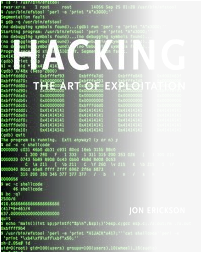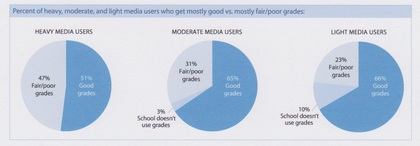Safety on the Internet
Stranger Danger
You might have heard that “1 in 5 young people has got an unwanted and offending message online.” But the truth is that only 3% of those people who have reported a person were actually asked to meet someone ofline, call them on the phone, or accept gifts. Most people just ignored those messages or looked at them as unimportant or just annoying.
If you ask parents about the biggest danger online, most will say “Internet scams and people trying to hurt you.” This connects into what parents have been worried about for a long time -- “stranger danger,” or a fear of being kidnapped. But the number of times where a stranger has kidnapped a child is often far lower than most people think. It is usually under 400 cases a year.
Reporting these people on the internet is big news for different types of media like news, papers and companies seling programs and products to help kids like you to be against these people that try to hurt you on the net.Most people thinks old men are the only ones trying to offend you online. But most offending solicitations come from someone your own age(unles your a kid), or someone you know, not form someone looking to offend you.
Basic facts
safe ** 71% of teens have reported receiving messages from someone they do not know
** From 2007-2009, MySpace has deleted 90,000 accounts because they were created by registered offenders
There are some great things you can see on the internet, but sometimes people with bad intentions can post pictures and things to read which might hurt you. This might be racist, violent or may include abusive images. You shouldn’t have to put up with this. If you should come across any content that is inappropriate, worries you or makes you upset then you should be encouraged to come to a parent or a trusted adult and talk about the issue. If you do experience inappropriate content online they should also report to the website it appears on. Some options to help prevent you from exposure to harmful content might include: The internet-connected computer must be in a family room with the screen facing outward so your parents can see whats going on.
You might have heard that “1 in 5 young people has got an unwanted and offending message online.” But the truth is that only 3% of those people who have reported a person were actually asked to meet someone ofline, call them on the phone, or accept gifts. Most people just ignored those messages or looked at them as unimportant or just annoying.
If you ask parents about the biggest danger online, most will say “Internet scams and people trying to hurt you.” This connects into what parents have been worried about for a long time -- “stranger danger,” or a fear of being kidnapped. But the number of times where a stranger has kidnapped a child is often far lower than most people think. It is usually under 400 cases a year.
Reporting these people on the internet is big news for different types of media like news, papers and companies seling programs and products to help kids like you to be against these people that try to hurt you on the net.Most people thinks old men are the only ones trying to offend you online. But most offending solicitations come from someone your own age(unles your a kid), or someone you know, not form someone looking to offend you.
Basic facts
safe ** 71% of teens have reported receiving messages from someone they do not know
** From 2007-2009, MySpace has deleted 90,000 accounts because they were created by registered offenders
There are some great things you can see on the internet, but sometimes people with bad intentions can post pictures and things to read which might hurt you. This might be racist, violent or may include abusive images. You shouldn’t have to put up with this. If you should come across any content that is inappropriate, worries you or makes you upset then you should be encouraged to come to a parent or a trusted adult and talk about the issue. If you do experience inappropriate content online they should also report to the website it appears on. Some options to help prevent you from exposure to harmful content might include: The internet-connected computer must be in a family room with the screen facing outward so your parents can see whats going on.
- If you accidentally go to an unsuitable website you should tell your parent – you can delete it from the ‘history’ folder and add the address to the parental control filter list.
- It’s never OK to use bad or threatening language in any online chat room.
- You should take breaks from the computer every 30 minutes for health and safety reasons.
- You shouldn’t download unknown files from the internet without you agreeing with your parents – it’s best to never download unknown files at all.
This photo came from Samulce.com

strangers are near!!!!!
These eigth rules, are from the webpage http://www.ivillage.com/10-rules-internet-safety-kids-0/6-a-128700?p=3. This webpage is American and has over 30 million users. I have re-written these rules not copied them. There were originaly ten rules.
Never give out any personal information like real name, address and photographs with out speaking with your parents.Remember people make not be who they say they are.
If you ever come across something that makes you uncomfortable or is just to good to be true, be suspicious.
Don't meet with anybody youve met on the net without your parents permission. If a meeting is arranged make sure it is somewhere public and if you you can then bring your parents.
Avoid chatrooms that discuss adualt information or cults.
Be suspicious about people you meet in chat rooms that might want to turn you against your family, friends, teacher and relgion.
These two rules come from a web site called b
When you sign up on an online thing make your online name so that it doesn't tell anything about you like your real name, your hobbies ecs.
Keep your password a secret, not even your friends need to know your password.
Whenever you go on an online game or webpage be kind to other users. It is possibel to get kicked out of a website so respect other peoples religions and feelings.
- These eigth rules, are from the webpage http://www.ivillage.com/10-rules-internet-safety-kids-0/6-a-128700?p=3. This webpage is American and has over 30 million users. I have re-written these rules not copied them. There were originaly ten rules.
Never give out any personal information like real name, address and photographs with out speaking with your parents.Remember people make not be who they say they are.
When you sign up on an online thing make your online name so that it doesn't tell anything about you like your real name, your hobbies ecs.
Keep your password a secret, not even your friends need to know your password.
Whenever you go on an online game or webpage be kind to other users. It is possibel to get kicked out of a website so respect other peoples religions and feelings.
These pie charts are from a report by the Kaiser Family Foundation in America. It shows that heavy media users have poorer grades.


